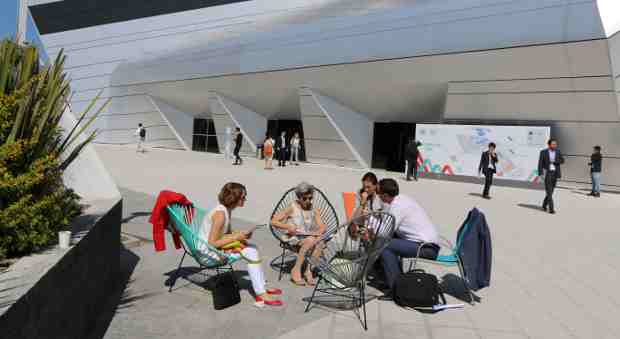Half of the World Population Not Using Internet. Why?

Internet Governance Forum
Nearly 3,000 delegates from across the world will join thousands more online for the 11th annual Internet Governance Forum (IGF) in Jalisco, Mexico.
With a key focus on addressing the challenges of today’s digital age and how to leverage the Internet to ensure it provides equal access to opportunities for all members of society, the Forum will run from Tuesday until December 9th.
It is projected that by the end of 2016, close to 4 billion people—more than half of the world’s population—will not be using the Internet.
To compound this, two out of three households in developing countries lack Internet access. Less than 10% of people in Least Developed Countries access the Internet compared with more than 80% in developed countries. There is a clear and urgent need to intensify global efforts to bridge the digital divide.
The IGF will gather governments, international organizations, technology leaders from the private sector and technical communities, civil society and academics to both address these pressing challenges but to also build on the enormous progress and advances the Internet has created.
“Today, the Internet has an impact on just about every aspect of life. It has undeniably sparked innovation and entrepreneurship, created new forms of public engagement and economic activity,” said Lenni Montiel, Assistant Secretary-General for Economic Development in the UN Department of Economic and Social Affairs. “This helps people connect, organize and act towards a common purpose.”
Expanding access to the Internet is seen as being integral to the successful implementation of the 2030 Agenda for Sustainable Development. The Agenda sets an ambitious goal to “significantly increase access to information and communications technology and strive to provide universal and affordable access to the Internet in least developed countries by 2020”. The Agenda has also established a new universal standard for development that aims to ensure no one is left behind.
With its theme “Enabling Inclusive and Sustainable Growth,” this year’s IGF seeks to exchange views on how the Internet can foster development in ways that are sustainable and inclusive—providing opportunities for all.
The four-day meeting will feature interactive dialogues and debates, while addressing a broad range of themes and issues including: Internet and Sustainable Development Access and Diversity Youth and Gender Issues Human Rights and Freedom of Expression Online Cybersecurity Multistakeholder Cooperation Critical Internet Resources and Internet Governance Capacity Building and Emerging Issues. More than 150 different types of sessions will be convened.
A number of IGF community intersessional activities will also be showcased at the forum, including IGF Best Practice Forums (BPFs), work on the Connecting and Enabling the Next Billion(s) initiative and IGF Dynamic Coalitions, which offer unique multi-stakeholder platforms for substantive collaboration on a wide array of Internet governance themes and issues.
Each year, the United Nations convenes the IGF meeting, through the UN Department of Economic and Social Affairs, to bring together various stakeholders to discuss current and emerging Internet governance issues, as well as related opportunities and challenges in an open, inclusive and transparent forum.
The IGF is recognized as the widest-reaching international multistakeholder policy forum on Internet governance. Its mandate was renewed for 10 years at the World Summit on the Information Society (WSIS) in December 2015.
The IGF is at the forefront of identifying and debating critical issues that shape the international agenda, as well as options and solutions for policy makers. It also focuses on giving stakeholders from developing countries the opportunity to consider practical ways to deal with their additional challenges.
Photo courtesy: IGF













